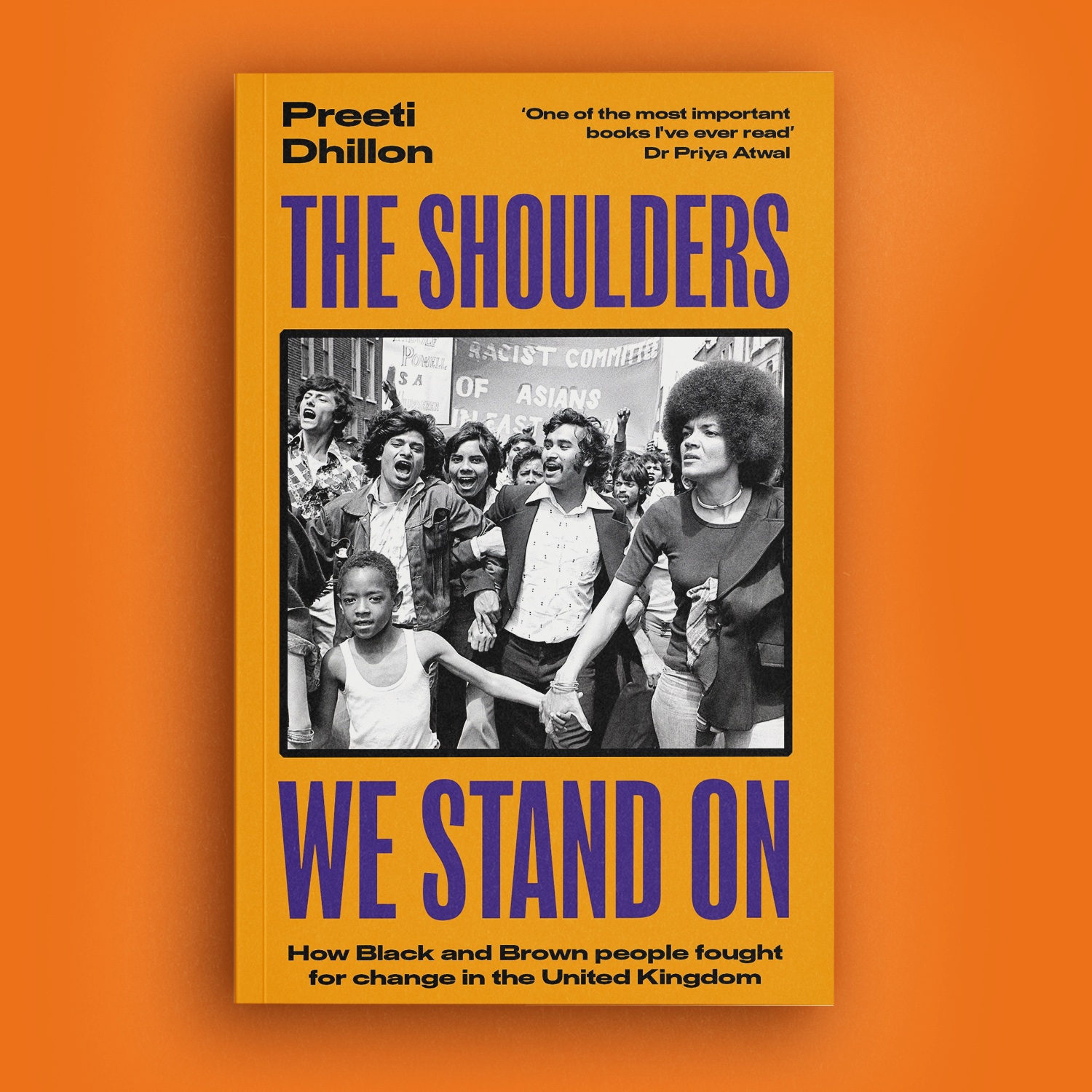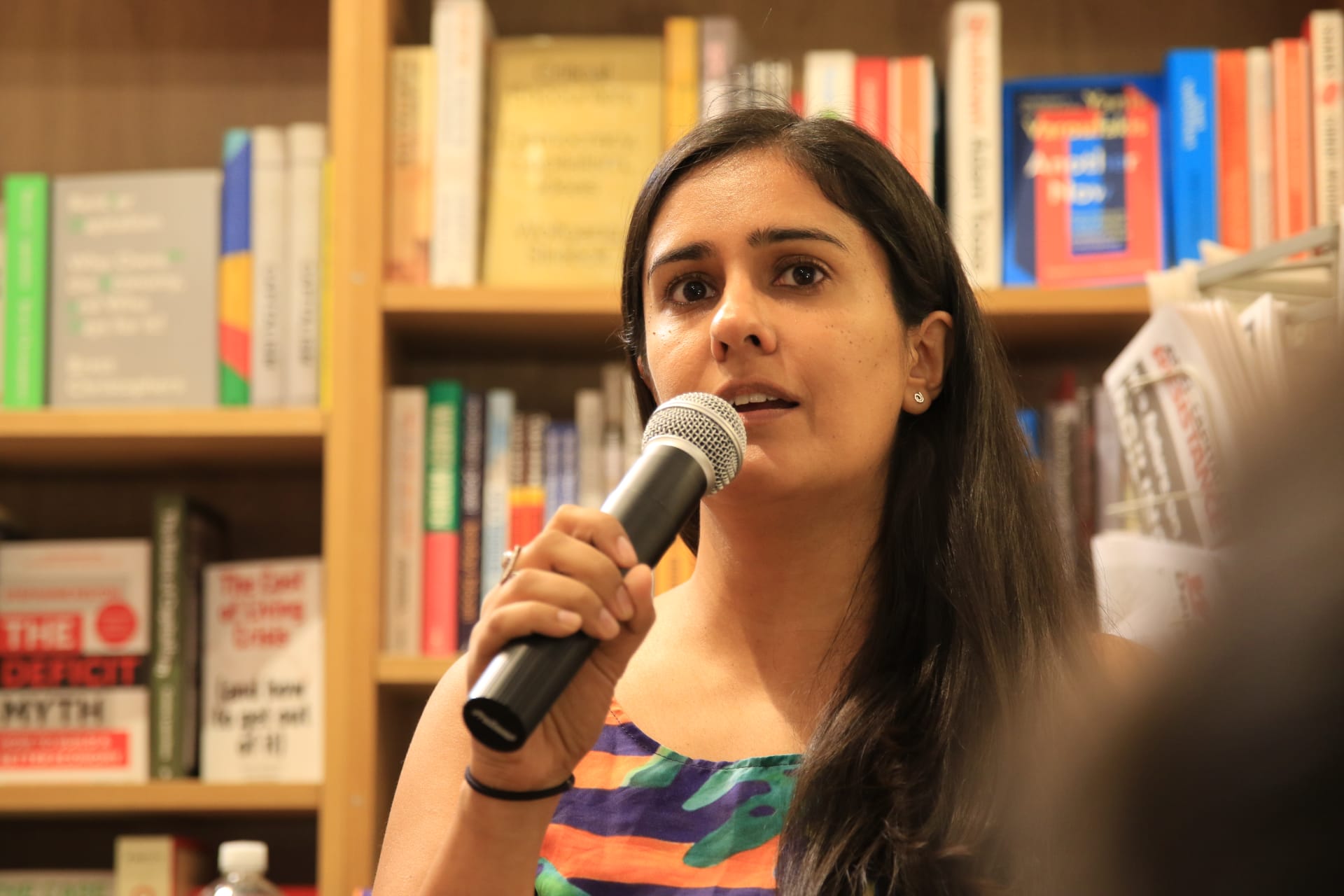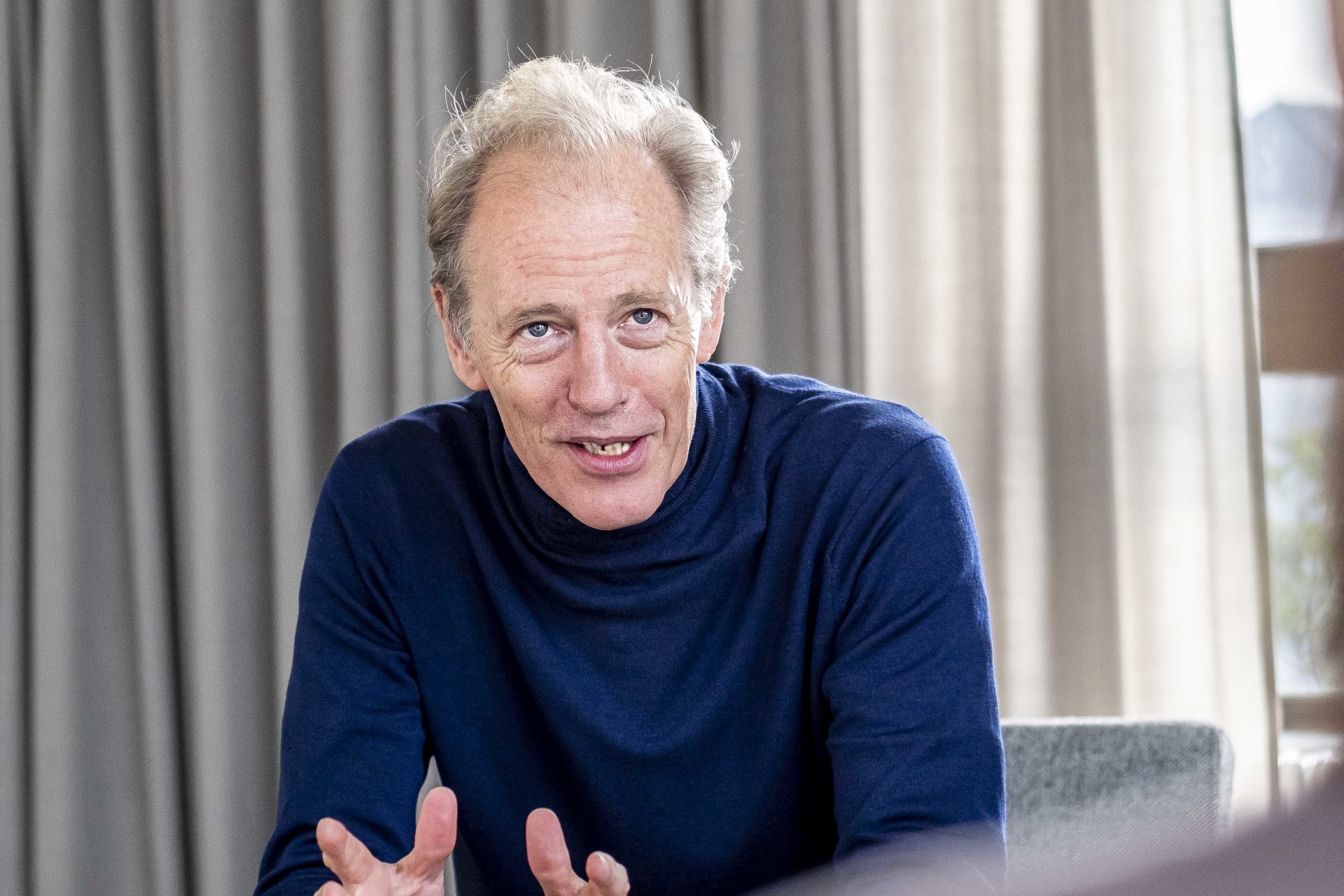Researcher, writer and historian Preeti Dhillon is author of The Shoulders We Stand On: How Black and Brown people fought for change in the United Kingdom (Dialogue Books, 2023) in which she explores ten Black and Brown-led movements, campaigns, organisations, from the 1960s to 1980s. Ahead of her talk in Oxford as one of a series of events taking place to mark Black History Month, we spoke with her about her writing and how we can raise awareness of unspoken histories.
Can you tell us about your upcoming event at Blackwells?
Obviously I'm not Black, but I'm speaking at a Black History Month event because my book includes a Black and Brown movements, and at that time, you couldn't separate the two. There was so much solidarity between the two movements and an idea of political Blackness which united everyone. I think it's an interesting conversation to have during Black History Month, and to sit within that.
How did you come to research these histories?
In 2019 I saw the American activist and academic Angela Davis, speak at an International Women's Day event, and she was talking about the civil rights movements in the US and I just thought there must have been something in the UK. So, I started to Google some things, got out a book or two from the library, and found a whole history of anti-racism, post-World War II. What surprised me most is that a lot of those movements actually happened where I grew up in Southall, and I had no idea. We didn't study local history when I went to school and my parents didn't speak about that history. You know, it's a very painful time to try and recall.
Was there one particular story in the book that really resonated with you?
The Grunwick Strike, which was one of the first movements I read about. It was a two-year long strike that started in the long, hot summer of 1976 at a photo processing factory in northwest London. They hired mostly Asian women because they knew they could pay them less and with that came a lot of exploitation. One day, a woman called Jayaben Desai had enough, and she quit. Her son and a few others also walked out with her. They decided to start a petition, and this strike went from a small group of workers in a factory of mostly Asian women to gathering the support of thousands of workers around the country. These women travelled up and down the country, to factories, foundries and mines, to talk about what they were going through. It struck a chord with a lot of people: even the dock workers in East London who had previously been marching for Enoch Powell and his rivers of blood speech turned out to support the Grunwick strikers because they identified as workers. At its height they had 20,000 people from around the country packed into the small streets in northwest London. Arthur Scargill and the miners came down, Labour MPs joined. It was huge but unfortunately it failed. But it was the most incredible story of resilience. It’s really quite cinematic..
Hang on, why hasn’t this been dramatized by ITV…
I know. Gurinder Chadha (Bend it Like Beckham) has tried to pitch this story but couldn't get it commissioned even though not only did the strike change the image of Brown women for a lot of people in the country but it also, unfortunately, informed a lot of Thatcher's policies. The secondary picketing – solidarity picketing – was outlawed when Thatcher came in. Jayaben Desai said afterwards, ‘I don't think that Labour learned anything from the strike, but Conservatives definitely did’.
The GMB [General and Municipal Workers Union] gave Jayaben a gold medal in 2007 and called it the most important strike in the post-World War era but this two-year strike involving people from all around the country, has somehow been lost.
What did you want to achieve in writing the book?
Well, it developed out of talking to my peers, and none of us know these stories. They're not just from the South but all around the country. The information was stuck either in academia and behind paywalls, or it was confined to local history projects. I wanted the book to bridge those two and tell these stories for a bigger audience, both in terms of making this history visible again, but also with a view of, trying to explain how we got to where we are today, and provide some sort of inspiration as to as to where we go from here.
I wanted to show that actually there has been a lot more continuity than there has been change. Take the legislation around immigration, especially anti-Black and Brown legislation. That has been very restrictive since the 1960s. Things like the Brexit vote aren't a weird blip; it makes perfect sense when you look at the past decades. One of the most striking things I found when I was writing about the different movements over the few decades was it doesn't actually matter who’s in power (Labour or Conservatives) because they're actually enacting the same things.
What are your thoughts on raising awareness with events like Black History Month?
South Asian Heritage Month is from July to August (that started in 2020) and it's great to have that space, but at the same time ideally it should be phased out. I went to my old school during Black History Month last year and asked if they were doing anything and they said we do Black history all year round. That’s exactly where we need to be heading. Black history is British history. Brown history is British history. These should be part of the school curriculum, be part of public discussions, regardless of the time of year.
How do we move forward, so that these histories become embedded in the general public awareness?
I think there are two parts to it. Yes, the onus is on Black and Brown people to tell our stories – and I make a big plea in the book for people to talk to their grandparents and their elders and gather not only their stories, but also their materials and give them to archives. This is all invaluable. It’s only because of the collections of these activists that I could get the details for the book.
There’s also an onus on allies to be responsible and promote these things. A lot of gatekeeping happens in the publishing industry. There was a big drive for inclusion, from the Black Lives Matter movement after the murder of George Floyd, but we've seen a lot of that fade away. There’s a joint study by Penguin and the Runnymede Trust called Lit in Colour which shows that having a diverse reading list in school has a major impact on children's lives. It’s just crazy that we need a study to show that – you’d think it would be self-evident – and it will be really interesting to see what comes from that, and what change actually happens.


Black History Month 2024: Race, Resistance and Empire at Blackwells Oxford chaired by Professor Yasmin Khan with speakers Preeti Dhillon Lucy Fulford and Sheela Banerjee will take place at Blackwells, Oxford on Thursday 3 October at 6pm. Tickets are available from eventbrite.co.uk.
For more information on Preeti’s work visit preetidhillon.co.uk








